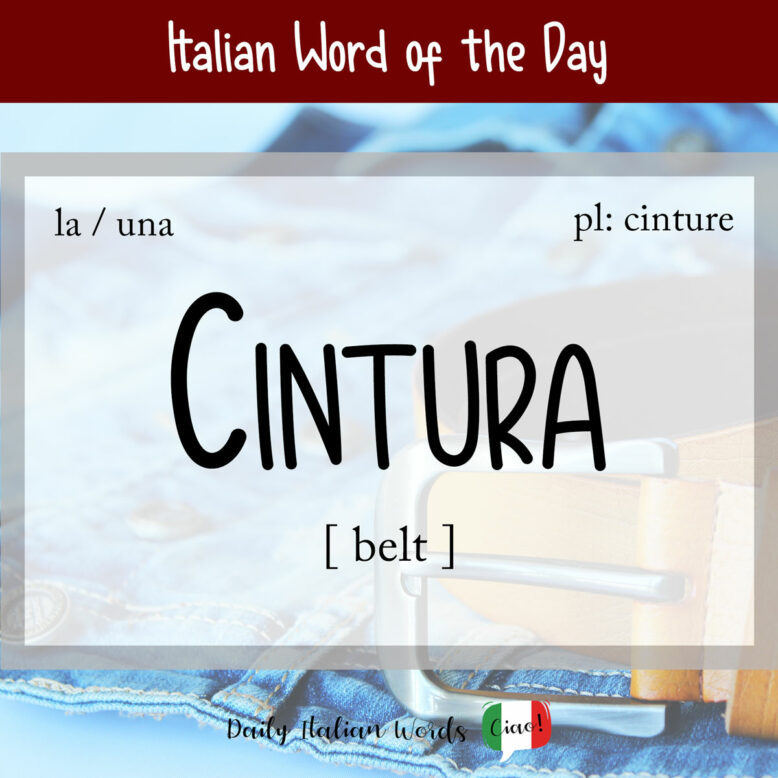The word for belt, or any kind of material typically worn around the waist, is cintura in Italian. It comes from the Latin cinctura, which in turn is a derivative of the verb cingere (to wrap, tie, enclose).

Cintura is a feminine noun, and its plural is cinture.
la cintura
una cintura
le cinture
delle cinture
Six common verbs you’ll see paired with this word are:
- stringere la cintura = to tighten one’s belt
- allentare la cintura = to loosen one’s belt
- allacciare la cintura = to fasten one’s belt
- mettere la cintura = to put on one’s belt
- slacciare la cintura = to undo one’s belt
- togliere la cintura = to take off one’s belt
Guarda, non riesco più ad allacciare la cintura. Mi sa che è ora di perdere qualche chilo…
Look, I can no longer fasten my belt. I think it’s time to lose a few pounds…

In addition to the strap that holds your trousers up, you can also use this word to describe the integrated part of a garment that tightens at the waist. For example:
Trovo che questi pantaloni siano troppo stretti alle gambe e troppo larghi alla cintura!
I find that these pants are too tight at the legs and too baggy at the waist!
Some other kinds of cinture include:
- cintura (di sicurezza) = seatbelt
- cintura corazzata = armoured belt
- cintura nera = black belt (in martial arts)
- cintura di salvataggio = lifebelt / life vest
- cintura di castità = chastity belt
- cintura pelvica = pelvic girdle

By extension, cintura can also refer to a person’s waistline or midriff, since that is where belts usually sit. A synonym for this definition is vita, which is also the word for life.
Le sabbie mobili gli arrivavano fino alla cintura.
The quicksand came right up to his waist.
Figuratively speaking, cintura is the word for an area that extends around a place, or sequence of identical things forming a line. For example, la cintura industriale is the industrial belt that surrounds a city, whereas una cintura di alberi is one way of saying a line of trees.
Heather Broster is a graduate with honours in linguistics from the University of Western Ontario. She is an aspiring polyglot, proficient in English and Italian, as well as Japanese, Welsh, and French to varying degrees of fluency. Originally from Toronto, Heather has resided in various countries, notably Italy for a period of six years. Her primary focus lies in the fields of language acquisition, education, and bilingual instruction.


